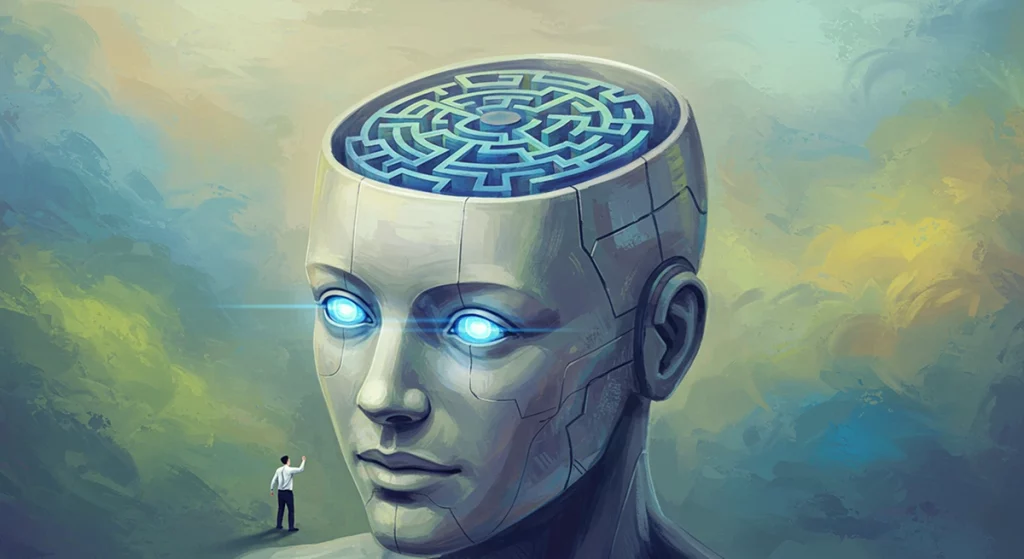HR Compliance & OperationHR Compliance
Future HR: What will HR Departments look like in 2030?
TABLE OF CONTENTS
We have already experienced major changes in Human Resources after the pandemic. Now we have to ask what future HR departments will look like. Human resources are essential to the overall business performance because the department forms the link between the workforce and the executive tier. This means that in order to complete this function effectively, HR departments need to adapt to the times and are likely looking at some major changes over the next few years.

HR Today
What is having the greatest impact on the HR profession today?
Increased Outsourcing
The HR industry has seen an increase in digitalization and therefore more technology has arisen that automates HR functions, or at least simplifies them. HR professionals also have greater access to self-service portals which increases their productivity as much of the more mundane administrative tasks are now done automatically through these portals.
Core HR Competencies are Changing
Unlike in previous years, the Chief Human Resources Officer has become integral in helping executives plan long-term business goals, and they are also forming part of teams who make business projections.

Remote Employees are Managed through Technology
Many of the elements related to remote workers are managed through technology. Their working time and productivity are managed by online systems that can be reviewed by managers and human resources professionals.
Adapting the Industry
Due to changes to key HR trends it has become essential for HR practitioners to adapt to the latest trends by changing best practices.

What is having the biggest impact on global HR?
Remote Workers
The increase in remote working has resulted in a bigger push for employees with technical skills who are able to acquire their own tech and maintain it accordingly where needed. Remote work also sometimes means that some employees are far enough away from the office that it is not possible for them to attend face-to-face meetings or functions. This has resulted in quite a bit of HR operations overhauls.
Data and Artificial Intelligence
This has largely resulted in a favorable change in the HR department. Big data and AI has broadened the prospects of HR development.
Gig Economy and Inclusive Culture
Many employees are now more geared towards work environments that have inclusive cultures where more minorities are better represented. People want to feel heard and supported in their work environments which tie directly in with employee well-being. Furthermore, gig workers are becoming more popular as the need for a secure and long-term post is decreasing with the increase of remote work opportunities.

People Analytics
HR processes now involve more analysis and evaluation of employee experience to ensure optimal performance. Recruitment methods are analyzed, gaps in skill sets are isolated, and the supply and demand of talent are constantly watched. People are exceedingly taking charge of managing their own career paths and taking career growth into their own hands. This increases the importance of people analytics and employee engagement becomes more important.
Employee Experience
While HR managers have historically focused on a path to improve employee performance, it has become exceedingly important to improve employee experience and employee engagement to ensure the retention of good employees.
Focus on Cyber Security
Cyber security has never been more important. The news is full of stories related to data breaches and improper management of human capital and all data associated with it. HR professionals are first and foremost responsible for personnel files and keeping those safe from cyber security threats.
Work from Home Leading to Work From Anywhere
While the early idea behind remote work was for employees to work from home offices, it has opened the door for employees to, theoretically, work from anywhere in the world. This increases some of the difficulties that HR teams face in people management.
Absence of Face-Time
As previously mentioned, it is sometimes not possible to see employees face-to-face, and even getting everyone into a face-time meeting when employees are in different time zones can be exceedingly difficult. Many HR professionals feel that this lack of face-time creates anonymity which can sometimes be detrimental to business needs by resulting in employees feeling isolated.

Future HR Jobs
HR Business Director
The purpose of an HR business director is to create a safe work environment for everyone and to work closely with executives, including HR business partners and the Executive Vice President. While we currently have HR leaders in place with most human resources departments, it is likely that the overarching role of an HR Business Director will become commonplace in future.
Head of WFH Department
With the undeniable increase in remote work positions opening up in different industries, there will soon be a part of workforce planning that involves a department for work-from-home employees. This department will likely need to be managed by an HR professional.
Head of Skill Design
Part of performance management and broader organizational performance is to keep developing the skills of existing employees and bringing new skills into the business by hiring the best job candidates available for any position.
Head of Human-Machine Integrations
Digitalization took a significant leap forward in recent years and has resulted in significant integration between human and machine operations. HR software is always developing and moving forward so the labor force and HR managers will have to integrate with machine operations through the guidance of a focused and sufficient leader.
HR Data Director
We have discussed that data is one of the major HR trends that are on the rise and data management and protection is becoming a central HR function. Therefore, it is not difficult to see how a dedicated Data Director might soon become one of the many HR jobs associated with the industry.
Employee Experience Developer
Employee retention is essential in the face of the gig economy. Employing HR roles specifically geared towards developing experience programs that aim to improve work-life balance and the employee’s mental health can serve as a business strategy to retain employees.
Virtual Reality Trainer
More online workers mean that in-person training will not always be possible. This combined with technological innovations will likely see the future of HR join the VR trend. Training and career development might soon take place on VR platforms, which can require dedicated VR trainers who understand the platform and know how to optimize its use.
Head of Gig Economy Management
As mentioned already, the gig economy culture is increasing rapidly, which likely means that change management would dictate that companies embrace this economy accordingly. This will likely result in the need for a designated Head of Gig Economy Management in HR.

Director of Wellness
Elements like company culture and wellness throughout an entire employee life cycle is central to employee retention in a modern workplace. The future of HR strongly suggests that there will soon be a need for a Director of Wellness to ensure that wellness is a central part of HR’s role in the business.
Remote Culture Developer
Both business leaders and HR professionals now understand the role that company culture plays in productivity overall. In a remote workforce it can be challenging to establish a strong work culture and this might be remedied through a department or role specifically dedicated to developing such a culture among remote workers.
Global Culture Head
Since work culture has become so important in the past few years, some new HR roles are likely to result from the need to implement and develop it. Especially where there is a large business with many different offices across the world, and remote employees in certain parts of the world, there will likely be a need for a Global Culture Head who can ensure that HR processes and HR leaders honor the type of strong culture that cultivates efficiency and wellness across the company.
Head of Organizational Engineering
Businesses need to keep up with new trends and new technologies, and that sometimes involves a lot of change management and implementation of new business strategy. Having a Head of Organizational Engineering in HR teams can be advantageous in the future.
Head of Gig Talent Acquisition
In the process of embracing the gig economy that is ever on the rise, HR departments will soon have to devote HR practitioners specifically to managing and hiring gig workers. An HR career might well see a career path that leads all the way up to a Head of Gig Talent Acquisition.
Policy and Compliance Manager
A significant part of employee wellness stems from what policies and procedures are in place. The past few years have seen a significant rise in laws and regulations that govern how people are treated, how data is managed, etc. HR plays a central role to both people and data management, so the future will likely see a dedicated Policy and Compliance Manager in any HR team.

Overall these seem to be many exciting new HR trends and HR practices on the rise that can be highly beneficial to companies in the future. Human resources has experienced a lot of sudden growth and development since the onset of the global pandemic and it does not seem to be slowing down any time soon.










